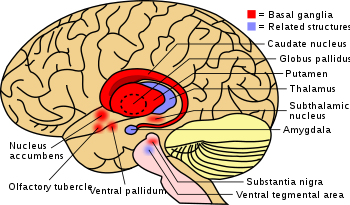Tourette’s syndrome (Tourette’s syndrome) is a neurological developmental disorder characterized by multiple motor and vocal tics that appear in childhood. These tics are often accompanied by behavioral changes.
This syndrome was originally described by french physician George Gilles de la Tourette in 1885 and has long been treated as a rare disease. Second, 0. 3 to 1% of students have been shown to meet the diagnostic criteria for this disorder.
- The main characteristic of this syndrome is the chronic presence since childhood of at least two motor tics and a vocal tic.
- But what do we mean by “tics”?.
Tics are involuntary, repetitive gestures or movements that occur when one or more muscles in the body, usually the face, contract. What they have in common is that they are convulsive, inappropriate and excessive movements. The distracting effect or the effort to reduce this activity.
Tourette syndrome affects all races and ethnicities, children and adults, although the average age of onset is 6 years; Furthermore, this syndrome is four times more common in men than in women.
As we have said, tourette’s syndrome includes two types of tics: motor tics and vocal tics; motor tics often precede vocal tics; In addition, the appearance of simple tics usually precedes complex tics.
Examples of simple tics include flicker, grimace, shrug, neck stretching, and abdominal contractions. Vocal tics consist of inhaling, grunting and spitting.
Simple and complex tics are preceded by a growing sense of internal tension. This tension is temporarily relieved by the expression of the tick. These sensations of tension, known as “foreboding impulses,” are characteristic of tics and differentiate Tourette’s syndrome from other hyperkinetic movements. Disorders.
Patients go to the consultation with tics of varying intensity, they can reach the office with mild syndromes that often go unnoticed or with loud and energetic noises that can even cause injury.
Diagnosis of this pathology is clinical and depends on observation and medical history. The diagnostic criteria for Tourette’s syndrome are:
It is not uncommon for patients to receive an official diagnosis of Tourette syndrome only after they have had symptoms for a long time, due to many reasons.
For family members and doctors unfamiliar with Tourette’s syndrome, symptoms such as mild and even moderate tics may be considered irrelevant. For example, some parents may think that flicker is related to eye problems or that children feel the environment of allergies in certain cases. Some patients may diagnose themselves after they, their parents, family, or friends have read or heard information about Tourette’s syndrome.
Little is known about the brain mechanisms associated with tics. Preliminary evidence from neurochemistry and neuroimaging research suggests a dysfunction of dopamine pathways in the cortical-striatum-thalamus-cortical circuit.
Neurological studies of patients with Tourette’s syndrome also showed alterations in brain maturation, in this sense, striatum neurons have been found to migrate to other areas, just as genetic predisposition is important for the onset of the syndrome, is a heterogeneous genetics. Disorder.
On the other hand, data from epidemiological and laboratory studies have draw attention to the importance of environmental factors, related to infections and autoimmune diseases, as well as prenatal and perinatal problems.
Tourette’s syndrome is present on the screens of our televisions and cinemas, there are many films that spread this disease and have made it their main theme.
In the movie? (2003), the character played by Nicolas Cage suffers from this syndrome. The film tells the story of two poor thieves selling water filters.
The protagonist of the film?(2004), played by Martin Sheen, also suffers from this disease and tells the story of a man collapsing because of his obsessive-compulsive disorder and Tourette’s syndrome.
The first one in the class? (2008) also revolves around this syndrome, the protagonist follows in the footsteps of a teacher who does not find work because he suffers from this condition.
Because tics symptoms don’t always cause disability, most people with Tourette’s syndrome don’t need medications to manage them; however, there are effective medications for people whose symptoms interfere with their daily performance.

